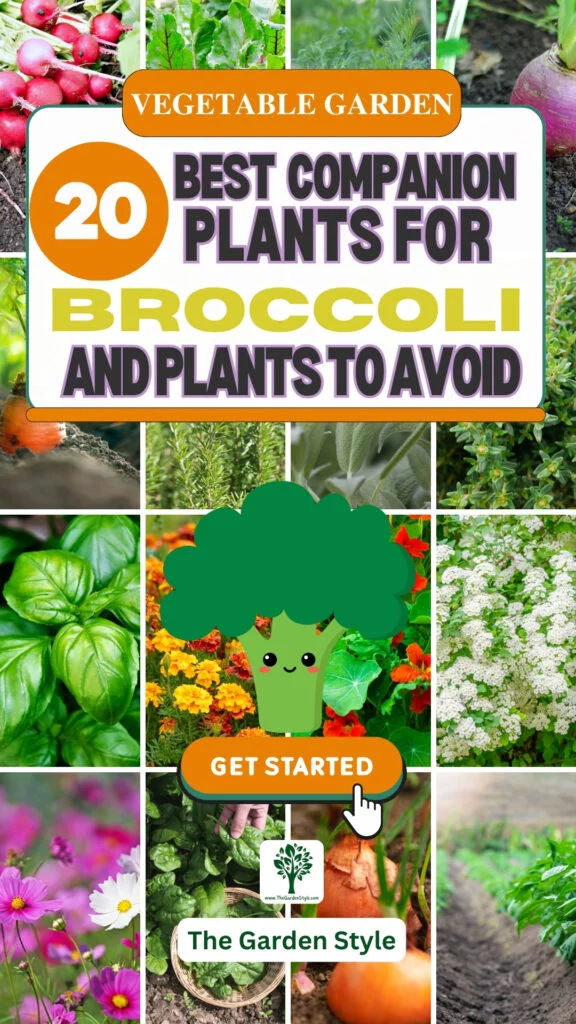If you’re an avid gardener or just starting your broccoli-growing journey, you’ve probably heard about the magic of companion planting. But what exactly are these “companion plants,” and how can they benefit your beloved broccoli patch? Buckle up, folks, because we’re about to explore the best companion plants for broccoli and discover the perfect plant pals for your cruciferous crop!
Table of Contents
What Are Companion Plants?
Companion plants are nature’s little helpers, carefully selected to grow alongside your main crop and provide mutual benefits. It’s like having a team of tiny gardeners working tirelessly to keep your plants healthy and happy. These companions can do everything from repelling pests and attracting beneficial insects to improving soil quality and even boosting flavor.
The Best Companions Plants for Broccoli
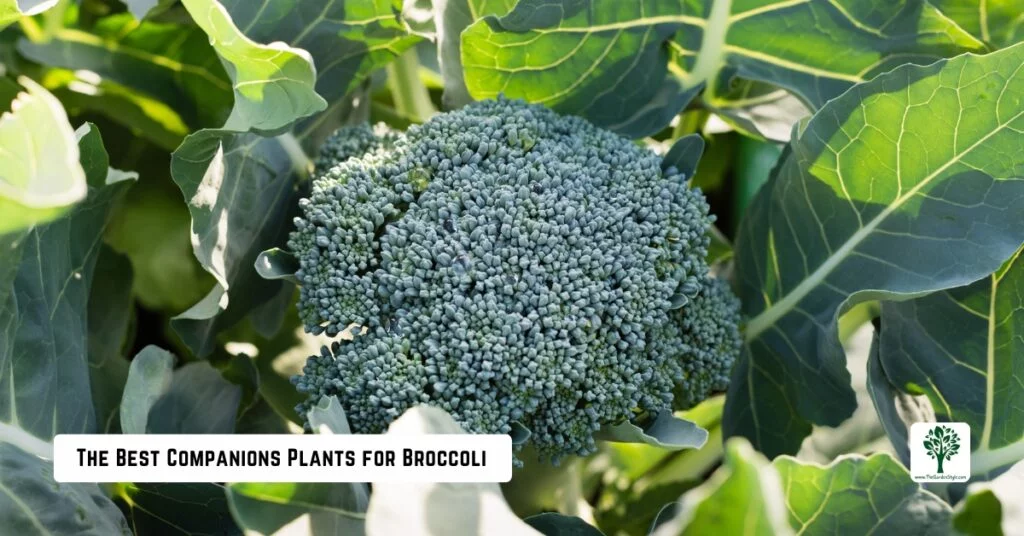
Now, let’s dive into the star-studded cast of companion plants for broccoli that can make your broccoli patch thrive like never before!
Root Crops
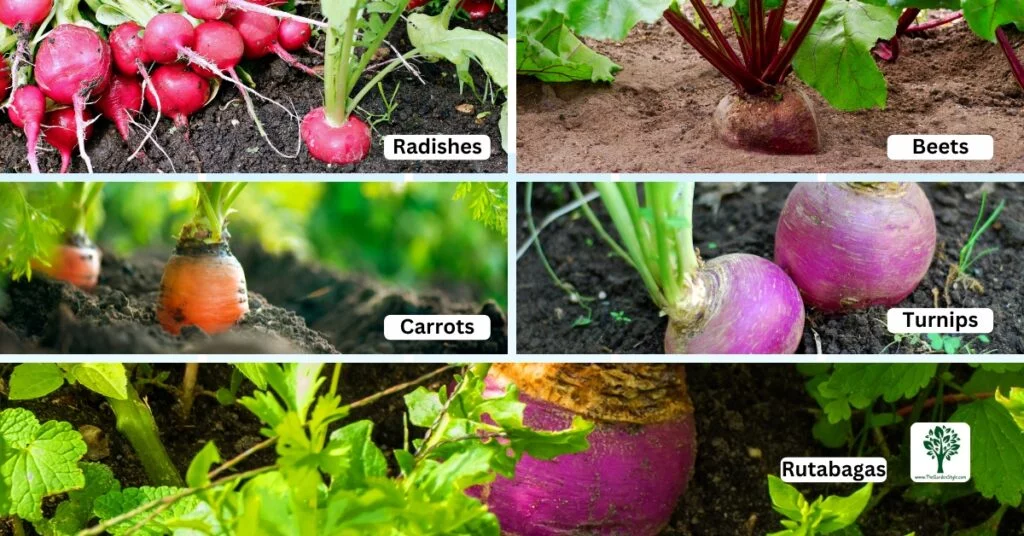
Radishes, beets, carrots, turnips, and rutabagas make excellent root crop companion plants for broccoli patches. These unassuming veggies do more than just add variety to your harvest – they play a crucial role in keeping your soil healthy and aerated.
Radishes, with their pungent flavor and vibrant hues, are quick-growing companions that can help loosen the soil with their spindly roots. Plus, they act as a trap crop, luring pesky root flies away from your prized broccoli. Learn how to grow radish.
Beets, those ruby-red beauties, are more than just a colorful addition to your salads. Their deep taproots help break up compacted soil, allowing your broccoli’s roots to spread and access vital nutrients more efficiently.
Carrots, the quintessential root crop, make excellent neighbors for broccoli. Their feathery tops provide light shade, helping to retain moisture in the soil, while their roots delve deep, aerating the earth as they grow.
Turnips, with their bold flavor and hardy nature, can withstand cooler temperatures, making them ideal for extending your growing season alongside broccoli. Their sprawling greens also help suppress weeds, keeping your garden tidy.
Last but not least, rutabagas, those unsung heroes of the root veggie world, bring a unique blend of flavors to your garden. Their deep roots help break through tough soil, while their leafy tops provide additional ground cover and shade for your broccoli plants.
Aromatic Herbs
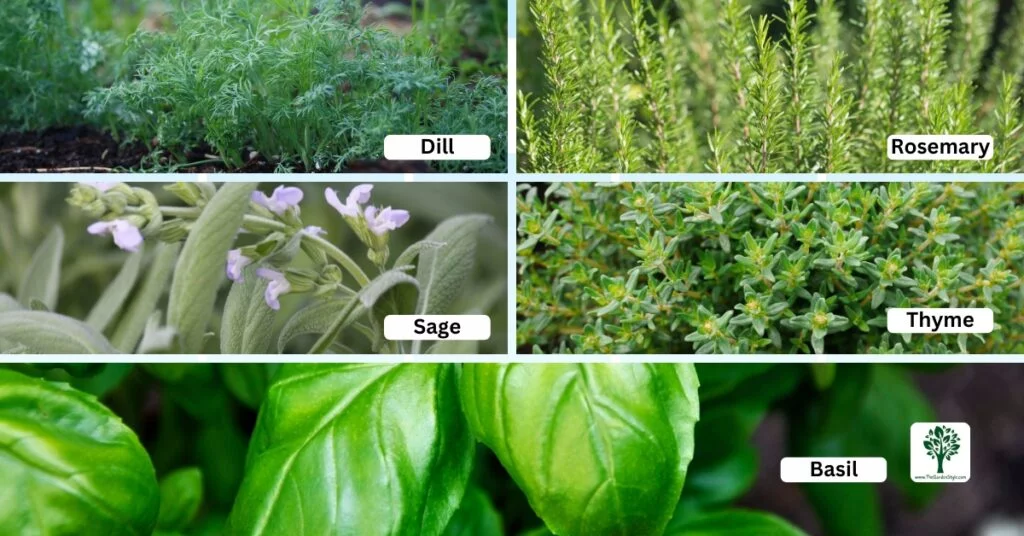
Dill, rosemary, sage, thyme, and basil are the fragrant ambassadors of the herb world, and they make fantastic companion plants for broccoli. Not only do they add a delightful aroma to your garden, but they also serve as natural pest deterrents, keeping those pesky critters at bay.
Dill, with its feathery foliage and distinctive flavor, is a true multitasker in the garden. Its umbels attract beneficial insects like ladybugs and lacewings, which feast on aphids and other pests that might threaten your broccoli crop.
Rosemary, a hardy evergreen shrub, is more than just a culinary delight. Its strong scent confuses and repels many common garden pests, including cabbage moths and carrot flies, making it an invaluable ally for your broccoli patch. Learn how to propagate rosemary.
Sage, with its velvety leaves and earthy aroma, is a powerhouse of pest protection. Its pungent oils deter cabbage loopers, cabbage worms, and other notorious broccoli munchers, ensuring your plants remain lush and vibrant.
Thyme, a low-growing perennial, is a versatile companion that not only repels pests but also attracts beneficial pollinators like bees and butterflies. Its tiny blossoms add a touch of beauty to your garden, while its robust flavor enhances any dish featuring your fresh broccoli. Learn how to grow thyme.
Last but not least, basil, the beloved herb of Italian cuisine, is a must-have in any broccoli companion garden. Its strong scent confuses and deters aphids, thrips, and spider mites, while its delicate flowers attract pollinators to your patch. Learn how to plant basil.
Flowering Plants
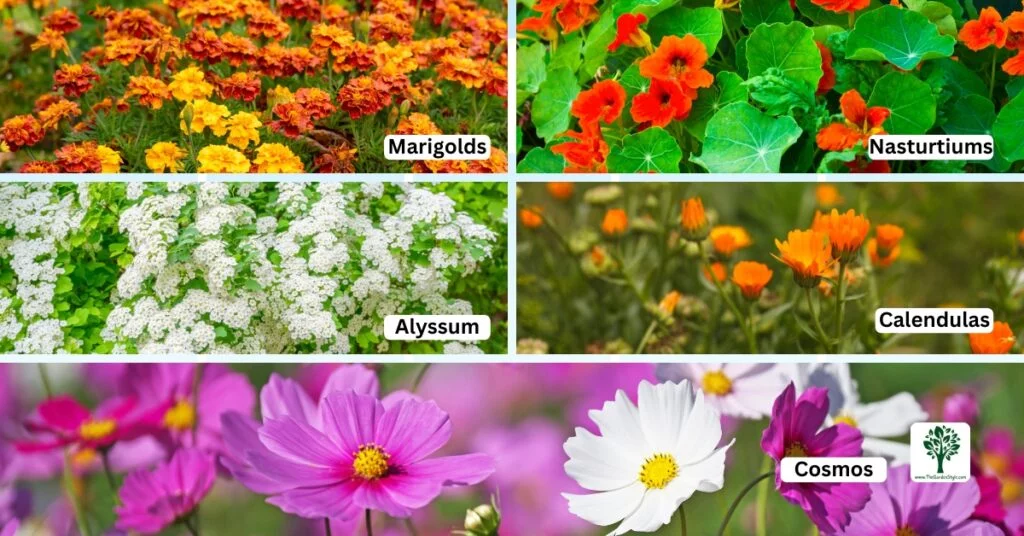
Marigolds, nasturtiums, alyssum, calendulas, and cosmos are the cheerleaders of the plant world, adding vibrant pops of color to your broccoli patch while attracting a host of beneficial insects to keep your crop healthy and thriving as companion plants for broccoli.
Marigolds, with their bold orange and yellow blooms, are a gardener’s best friend. Not only do they attract pollinators like bees and ladybugs, but they also release compounds that deter nematodes, whiteflies, and other pests that might target your broccoli. Learn how to grow marigolds.
Nasturtiums, with their edible flowers and peppery leaves, are more than just a pretty face. These trailing plants act as a trap crop, luring aphids and other pests away from your broccoli while also providing ground cover to suppress weeds.
Alyssum, a low-growing annual, forms a carpet of tiny white or purple flowers that are irresistible to beneficial insects like parasitic wasps and lacewings. These predators will gladly patrol your garden, keeping pest populations in check.
Calendulas, also known as pot marigolds, are a stunning addition to any garden. Their bright orange blooms attract hoverflies and other pollinators, while their pungent odor deters rabbits and deer from nibbling on your precious broccoli.
Cosmos, with their delicate petals and airy foliage, are a magnet for bees, butterflies, and other pollinators. These graceful flowers not only add a touch of whimsy to your garden but also help ensure a bountiful broccoli harvest through their pollination services.
Other Vegetables
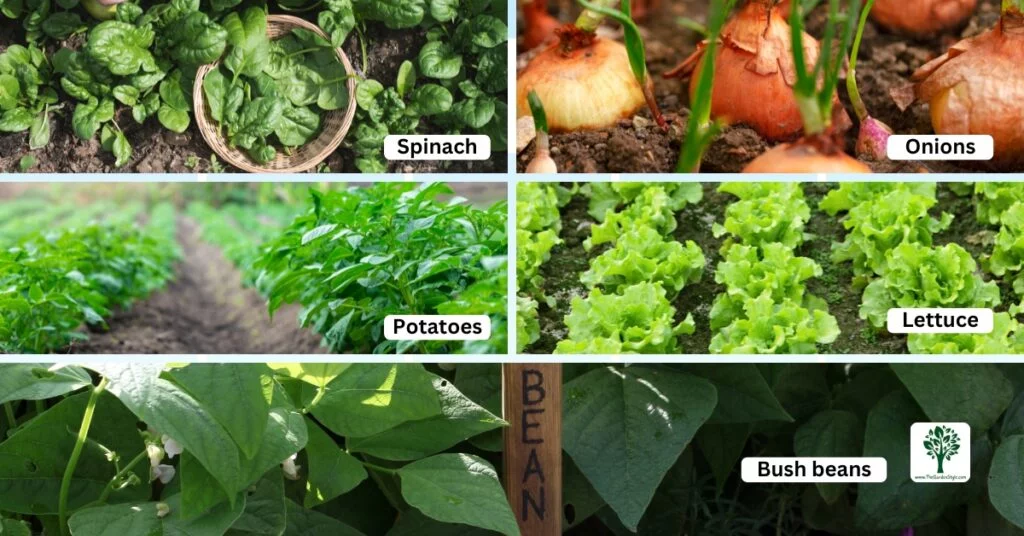
Spinach, onions, potatoes, lettuce, and bush beans make excellent veggie companions for your broccoli patch, each offering unique benefits to help your cruciferous crop thrive.
Spinach, a nutrient-dense leafy green, provides excellent ground cover and helps retain moisture in the soil. Its shallow roots don’t compete with your broccoli’s deeper ones, making it an ideal planting partner.
Onions, with their pungent aroma, are natural pest deterrents. Their strong scent confuses and repels aphids, cabbage worms, and other common broccoli pests, while their shallow roots aerate the soil and allow for better water infiltration. Learn how to plant onions.
Potatoes, those humble tubers, make surprisingly good companions for broccoli. Their broad leaves provide shade and help retain soil moisture, while their roots help break up compacted soil, allowing your broccoli’s roots to spread more easily. Learn how to plant potatoes.
Lettuce, a cool-weather crop, is a perfect pairing for broccoli. Its shallow roots don’t compete with your broccoli’s deeper ones, and its low-growing habit provides ground cover to suppress weeds and retain soil moisture.
Bush beans, with their nitrogen-fixing capabilities, help enrich the soil with vital nutrients that your broccoli plants crave. Their compact growth habit means they won’t overshadow your cruciferous crop, making them an ideal space-saving companion.
At a Glance: Broccoli Companion Planting Chart
| Companion Plant for Broccoli | Type | Benefits for Broccoli |
| Radishes | Root Crop | Help loosen the soil with their spindly roots, act as a trap crop luring away root flies |
| Beets | Root Crop | Deep taproots break up compacted soil, allowing broccoli roots to spread and access nutrients |
| Carrots | Root Crop | Feathery tops provide light shade and retain moisture, roots aerate the soil |
| Turnips | Root Crop | Withstand cooler temperatures, extending the growing season, greens suppress weeds |
| Rutabagas | Root Crop | Deep roots break through tough soil, leafy tops provide ground cover and shade |
| Dill | Aromatic Herb | Attracts beneficial insects like ladybugs and lacewings that prey on pests |
| Rosemary | Aromatic Herb | Strong scent repels cabbage moths and carrot flies |
| Sage | Aromatic Herb | Pungent oils deter cabbage loopers, cabbage worms, and other pests |
| Thyme | Aromatic Herb | Repels pests and attracts pollinators like bees and butterflies |
| Basil | Aromatic Herb | Strong scent deters aphids, thrips, and spider mites, attracts pollinators |
| Marigolds | Flowering Plant | Attracts pollinators, releases compounds that deter nematodes and whiteflies |
| Nasturtiums | Flowering Plant | Act as a trap crop for aphids, provide ground cover to suppress weeds |
| Alyssum | Flowering Plant | Attracts beneficial insects like parasitic wasps and lacewings that prey on pests |
| Calendulas | Flowering Plant | Attract pollinators, deter rabbits and deer with their pungent odor |
| Cosmos | Flowering Plant | Attract pollinators, ensuring a bountiful broccoli harvest |
| Spinach | Other Vegetable | Provides ground cover and retains moisture, shallow roots don’t compete with broccoli |
| Onions | Other Vegetable | Pungent aroma deters pests like aphids and cabbage worms, shallow roots aerate the soil |
| Potatoes | Other Vegetable | Broad leaves provide shade and retain moisture, roots break up compacted soil |
| Lettuce | Other Vegetable | Shallow roots don’t compete with broccoli, provides ground cover and retains moisture |
| Bush Beans | Other Vegetable | Fix nitrogen in the soil, compact growth habit doesn’t overshadow broccoli |
Plants to Avoid with Broccoli
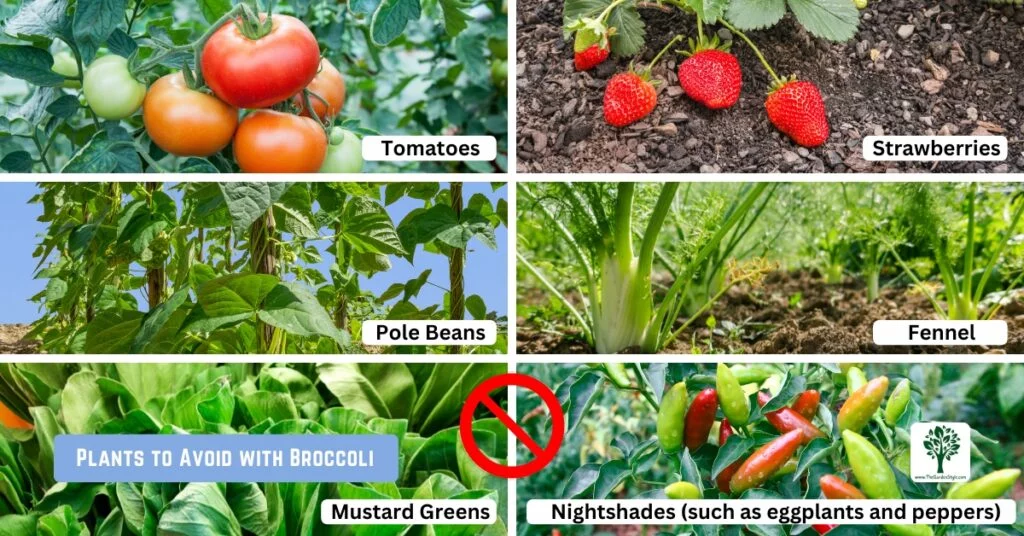
While companion planting can work wonders for your broccoli patch, some plants simply don’t make good neighbors. These incompatible companions can compete for resources, stunt growth, or even attract pests that could harm your beloved cruciferous crop.
Tomatoes
These juicy fruits can actually stunt the growth of your broccoli plants, so it’s best to keep them separated. Tomatoes and broccoli have different nutrient and environmental requirements, making it challenging for both crops to thrive when planted together.
Strawberries
While strawberries are delicious, they’re not the best buddies for broccoli. Their sprawling runners can compete for nutrients and water, leaving your cruciferous crop feeling neglected. Additionally, strawberries can harbor pests like spider mites, which could easily spread to your broccoli plants.
Pole Beans
These climbing vines can quickly overshadow and shade your broccoli plants, blocking out the precious sunlight they need to thrive. Pole beans also have aggressive root systems that can out-compete your broccoli for water and nutrients.
Fennel
With its strong licorice-like aroma, fennel can actually stunt the growth of broccoli and other members of the brassica family. This pungent herb also attracts cabbage moths and other pests that could wreak havoc on your broccoli crop.
Mustard Greens
While mustard greens are part of the brassica family, they’re not the best companions for broccoli. These spicy greens can attract the same pests that target broccoli, leading to an infestation that could decimate your entire crop.
Nightshades
Plants from the nightshade family, such as eggplants and peppers, should be kept away from your broccoli patch. Like tomatoes, these crops can stunt the growth of your broccoli and potentially harbor pests or diseases that could spread.
| Plants to Avoid with Broccoli | Reason to Avoid |
| Tomatoes | Can stunt broccoli growth, different nutrient and environmental requirements |
| Strawberries | Compete for nutrients and water, can harbor pests like spider mites |
| Pole Beans | Overshadow and shade broccoli plants, aggressive root systems compete for resources |
| Fennel | Can stunt growth of broccoli and other brassicas, attracts cabbage moths and other pests |
| Mustard Greens | Attract the same pests that target broccoli, leading to potential infestations |
| Nightshades (eggplants, peppers) | Can stunt broccoli growth, harbor pests or diseases that could spread |
By avoiding these incompatible plants and focusing on the best companion options, you’ll create a harmonious garden ecosystem that supports your broccoli’s growth and keeps pests at bay.
Tips for Successful Companion Planting
Now that you know the key players, here are a few tips to ensure your companion planting game is on point:
- Spacing and layout: Pay attention to the growing habits of your plants and give them enough room to coexist without overcrowding.
- Rotating crops: Mix things up each season to prevent nutrient depletion and pest buildup in the soil.
- Maintaining soil health: Incorporate compost, mulch, and organic fertilizers to keep your soil rich and your plants well-fed.
Final Conclusions
By incorporating the right companion plants into your broccoli garden, you’ll be well on your way to a bountiful harvest and a thriving ecosystem. So, embrace the power of these plant pals, and watch as your broccoli patch transforms into a verdant oasis of harmony and abundance. Happy gardening, my friends!
Frequently Asked Questions
Companion planting serves several purposes, including pest control, attracting beneficial insects, improving soil health, and maximizing space in your garden.
It’s generally not recommended to plant broccoli and tomatoes together, as tomatoes can stunt the growth of broccoli plants.
The spacing will depend on the specific companion plants, but in general, you’ll want to leave enough room for each plant to grow and access sunlight and nutrients.
It’s a good idea to rotate companion plants each season, just as you would with your main crops. This helps prevent nutrient depletion and pest buildup in the soil.
If this post about the best companion plants for broccoli was helpful, please share it:
